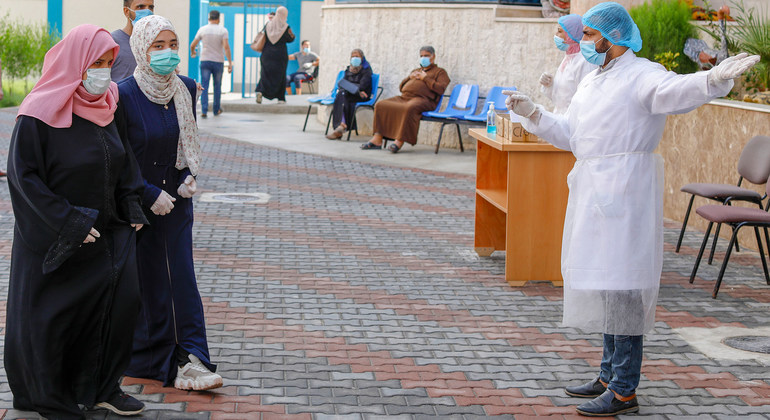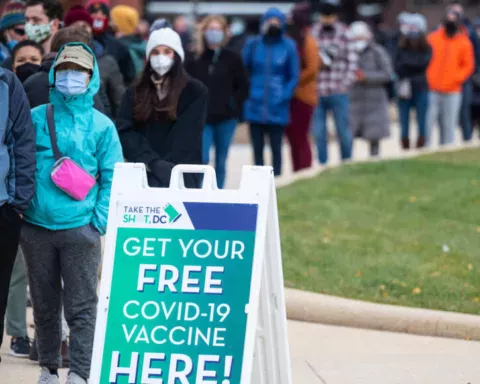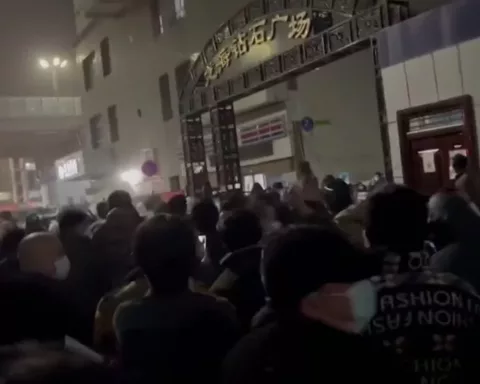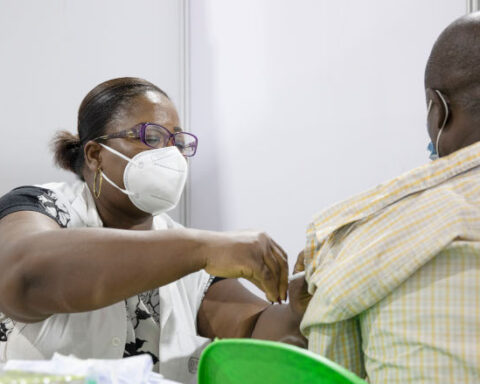“Meanwhile, the COVID-19 pandemic has worsened the already dire humanitarian and socio-economic situation” Secretary-General António Guterres said at the meeting online marking the International Day of Solidarity with the Palestinian People, which was on Sunday.
While noting that Israel’s suspension of West Bank annexation plans has removed a critical threat to peace and regional stability, he indicated that the expansion of settlement planning and construction continues.
Moreover, demolitions and seizures of Palestinian-owned structures by Israeli authorities across the occupied West Bank, including East Jerusalem, have reached the highest documented rate in four years.
“Such actions are contrary to international law and undermine the prospects for the establishment of a viable, contiguous Palestinian state, he stressed.
Despair in Gaza
At the same time, acts of violence, the constant threat of escalation, movement and access restrictions, incitement, and human rights violations, persist in Gaza, “keeping the situation highly volatile”, the UN chief bemoaned.
In violation of international humanitarian law, militants continue to fire indiscriminate rockets and mortars towards Israeli civilian population areas, heightening the risk of new hostilities.
“Gaza entered the 13th year of Hamas control”, Mr. Guterres stated. “On the other hand, tight closures have exacerbated the suffering of the people”.
The top UN official stressed that – in line with Security Council Resolution 1860 – the lifting of closures and reunification of Gaza and the occupied West Bank under a single, democratic, national government, are “essential for addressing the needs of the population and restoring faith in a political horizon”.
Only two States will do
As the prospects for a viable two-State solution seem to be growing ever more distant, Mr. Guterres shared his hope that, with international support, recent developments would encourage Palestinian and Israeli leaders to “re-engage in meaningful negotiations” and “create opportunities for regional cooperation”.
“Only a two-State solution that realizes the legitimate national aspirations of Palestinians and Israelis can lead to sustainable peace”, he upheld, repledging the UN’s commitment to supporting Palestinians and Israelis to resolve the conflict.
Keep vital services alive
The top UN official underscored the need to support the life-saving work of the UN Relief and Works Agency for Palestine Refugees in the Near East (UNRWA) and called on Member States to provide the necessary resources for it to continue delivering its vital services to millions of Palestine refugees.
“Failure to do so could pose serious risks to stability that the region cannot afford”, he warned.
A ‘desperate’ situation
Despite the significant efforts that may have been made, “peace in the Middle East is unfortunately still far away”, General Assembly President Volkan Bozkir told the meeting.
He painted a picture of Palestinian civilians suffering from decades of occupation, excessive and disproportionate force, arbitrary arrests, demolitions, illegal settlement activities, and other injustices.
“Of the five million people in Palestine, almost half need humanitarian assistance, over a million of whom are children”, the Assembly President said.
Back in 1947, the General Assembly adopted Resolution 181 to legally establish the State of Israel, and a second state, for the Palestinian people.
However, Mr. Bozkir flagged that “in the seven decades that followed, we have failed to establish a state for the Palestinian people”.
A two-State solution recognized by Resolution 181, is “the only premise for a just, lasting and comprehensive peace between Israelis and Palestinians, to bring security and prosperity to all”, he underscored.
The UN official maintained that the UN must continue to support Palestinians and Israelis to “resolve the conflict on the basis of international law and bilateral agreements and realizing the vision of two States living side by side in peace and security within recognized borders, on the basis of the pre-1967 lines”.
“These terms of reference cannot be changed. The rights of Palestinian people are not up for negotiations”, he stressed. “I, therefore, encourage in the strongest terms, all parties to embrace peace, set aside differences and put the interests of the people they serve first.
Our time will come: Abbas
Palestinian President Mahmoud Abbas, referenced “liberation movements against colonialism, Apartheid and oppression” throughout history and successful struggles for independence that have led to UN Membership for nations “as free countries”.
“We draw from this international solidarity more determination and faith that one day soon we will take our natural and legitimate place among the nations of the world”, he asserted.






